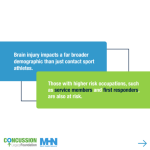Protecting Yourself and Your Partner from HIV
In midlife, many women over the age of 50 are still interested in having sex and may engage in new relationships. It’s vital to have open conversations about HIV and safe sex practices with intimate partners. Women over 50 are at an increased risk for new HIV infections, emphasizing the importance of protection.
Before engaging in physical intimacy, it’s crucial to communicate your expectations with your partner. Discuss safe sex practices, previous STI testing, and treat all partners as new in terms of safety precautions. Transparent communication can foster a sense of connection and encourage your partner to be open as well.
Conversations about safe sex may lead to defensiveness from your partner. Providing facts, answering questions, and offering to visit a clinic together for STI testing can help ease their discomfort. Remember that safe sex is self-care, and using barrier methods like condoms, considering PrEP, and asking about PEP after unprotected sex are essential steps.
For women living with HIV, disclosing your status can be challenging, but it’s important to communicate openly and set your own timeline. In some states, disclosing your HIV status before sexual encounters is required by law. Despite the potential awkwardness, discussing HIV openly is crucial for a satisfying and safe sex life in midlife and beyond.






